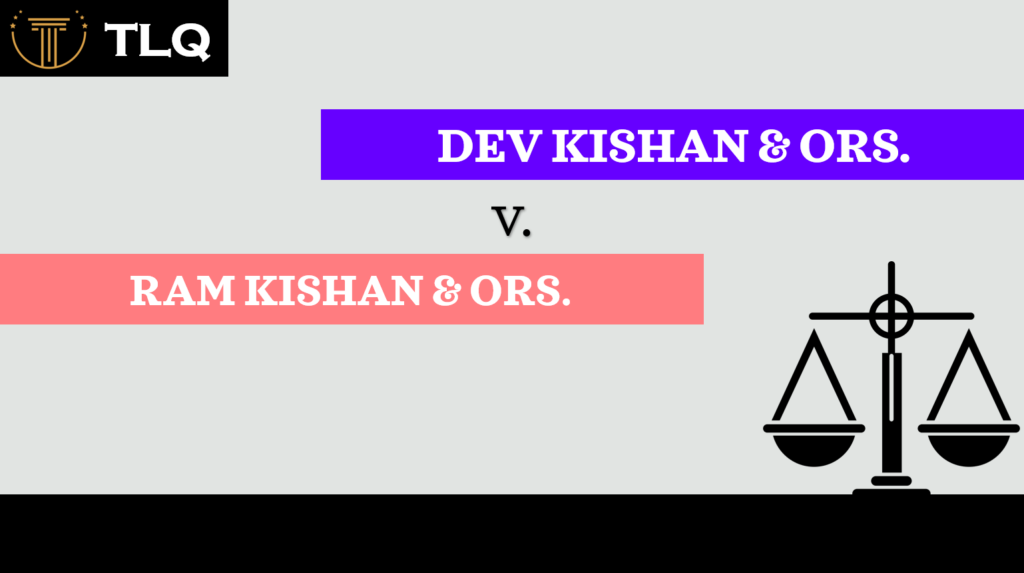Published On: 27th October, 2024
Authored By: Kavidharani R
Presidency University, Bangalore
Introduction:
The judgement of the Supreme Court in Navtej Singh Johar vs. Union of India can be labelled as a colossal step into a new frontier of jurisprudence of India and more so in the case of LGBTQ+. The criminalization of consensual gay sex is a blow to the human rights advocates and individual liberty. This analysis, structured around the FILAC approach Facts, Issues, Law, Application, and Conclusion is an attempt to understand the nuances of the case, giving full comprehension of the judgment and its wide implications.
Facts:
At the heart of the challenge is the vires of Section 377 of the Indian Penal Code, 1860 (IPC). Section 377 criminalizes “carnal intercourse against the order of nature,” a provision that has been historically used to prosecute consensual sexual acts between adults of the same sex. The challenge to this section traces its roots to 2009, when the Delhi High Court in Naz Foundation v. Govt. of N.C.T. of Delhi ruled Section 377 to be unconstitutional, but only to the extent that it applied to consensual homosexual acts between adults. However, this judgment was again overturned in 2014 by the Supreme Court by the verdict in Suresh Kumar Koushal v. Naz Foundation and Section 377 was back in force.
In 2016, a dancer and an openly gay man, Navtej Singh Johar, along with some other petitioners, challenged the IPC’s Section 377 under a writ petition for being ultra vires to the Constitution of India in regards to the right to privacy, dignity, equality, and freedom from discrimination. The State, they said, cannot prosecute private, consensual acts between adults as this would impinge upon the fundamental rights and human dignity of the victims.
The Union of India left it to the Court to decide, while several representations were made on behalf of and against the petitioners by different NGOs and religious organizations.
Issues:
- Constitutional Validity of Section 377: Does Section 377 of the IPC, to the extent that it criminalizes consensual sexual activity between adults of the same sex, violate the fundamental rights guaranteed by the Constitution?
- Right to Privacy and Human Dignity: Whether the criminalization of consensual same-sex relationships violates rights to privacy and human dignity under Article 21 of the??
- Right to Equality and Non-Discrimination: Is Section 377 in violation of the fundamental right against arbitrary and unreasonable action under Article 14, and the fundamental right to equality before the law under Article 15?
- Freedom of Expression: Is Section 377 on indulgence with Section 294 imposing unreasonable restrictions on the freedom of expression provided under Article 19?
Law :
The provisions under challenge in the present case are as follows:
- Section 377, Indian Penal Code, 1860: This section penalizes “carnal intercourse against the order of nature” and is punishable by imprisonment for life or a term of years and a fine.
- Article 14, Constitution of India: Ensures that every person is equal before the law and is entitled to equal protection within the territory of India.
- Article 15, Constitution of India: It shall be prohibited to discriminate against any citizen in terms of religion, race, caste, sex, or place of birth.
- Article 19, Constitution of India: It guarantees freedom to speak and express.
- Article 21, Constitution of India: It upholds the right to life with personal liberty, including the right to privacy and dignity.
Analysis:
Navtej Singh Johar v. Union of India is much more than a landmark case in the decriminalization of homosexuality; it is an exposition of the broad constitutional vision of the concomitant dignity and rights of the LGBTQ+ community. We are adopting the dimensions in which the Court reasoned to reiterate the protection of basic rights under the Constitution.
Right to Privacy:
The need for privacy, the right to be left alone, is protected by the Court on the altar of K.S. Article 21 encompasses the Puttaswamy v. Union of India decision and is inalienably attached to it. If used, it is manifest that in the utilization of criminal law to penalize consensual same-sex acts in private per se, this right is strictly violated. Privacy includes not just the right to be let alone but also the right to intimate personal decisions. By penalizing private consensual acts, section 377 authorized state intrusion and ordinance discrimination against persons in the LGBTQ+ community, even with regard to their privacy.
Right to Dignity:
The Court referred to human dignity as the core that unites under Article 21 the right to life. Criminalizing the natural expression of sexuality relegated a person as a part of the LGBTQ+ community to a marginalized-inhuman status and actively denied them constitutional dignity. The human dignity that includes respect for individual identity and autonomy was a basic tenet considered by the Court. By making consensual same-sex conduct a criminal offence, Section 377 deprived members of the LGBTQ+ community of their dignity and made it unequal with citizenship for all other citizens.
Right to Equality:
The court has held that Section 377, which discriminates against individuals based on their sexual orientation, is violative of equality under Article 14. The law is arbitrary and unjust, with no reasonable nexus to any legitimate state objective. Equality prohibits not merely discrimination but calls for the development of conditions where equal opportunity is extended by the state. Section 377 of the IPC, by criminalizing the members of the LGBTQ+ community, ensured embedded systemic discrimination and exclusion.
Protection from Discrimination:
The Court further established that discrimination on the ground of sexual orientation is not legally sustainable under Article 15. Sexual orientation is an intrinsic attribute of a person and discrimination based on sexual orientation is violative of the most fundamental right to equality.
The Court held that criminalization of consensual acts under the impugned provision curtails the right to express one’s orientation, which then violates a person’s rights of equality and non-discrimination. This view is reflective of international human rights norms, which maintain that every person should be protected from any violation of LGBTQ+ rights.
Freedom of Expression:
The Court found that Section 377 placed unconstitutional values on the freedom of expression given under Article 19. One of the facets of personal autonomy and identity is the right to express one’s sexual orientation. Section 377 criminalized the freedom of LGBTQ+ people to express their identity and relations through their sexual orientation. This way, suppression of expression further marginalizes the LGBTQ community. The reasoning of the judgment rested on judicial precedents and international human rights standards for instance, it made references to cases, such as the National Legal Services Authority v. Union of India, which had recognized some rights of transgender individuals, and international instruments, such as the Yogyakarta Principles, that provide for principles of protecting the rights of the LGBTQ+. The judgment abounds with principles of transformative constitutionalism, aimed at the transformation of society and the progressive realization of rights.
Conclusion:
The judgment of Navtej Singh Johar vs. Union of India is really a watershed moment in the recognition and protection of the rights of LGBTQ+ persons in India. This one stroke of judgment, essentially de-criminalizing the relationships in issue, upholds the constitutional values of equality, dignity, and personal freedoms that may eventually pave the way for societal acceptance.
The Chief Justice also asserted in no unclear terms that constitutionalism shall receive towering justification alone if it is able to motivate the changes in society by gradual acceptance of rights. He elaborated on constitutional morality that which accommodates human dignity and respect for rights as being superior to social morality, often majoritarian and flawed in its sense of bias. Rather, the judgment emphasizes the role of the Constitution as leading society to be inclusive and realizing the protection of individual rights.
The view was underlined by Justice R.F. Nariman in a separate judgment, which saw the calling of wide dissemination of the ruling to remove any stigma attached to the people of the LGBT community. It further underlined the necessity for enough sensitization within government and police ranks towards the treatment of such individuals not just with respect, but kindly. Indeed, it put strong emphasis on the need to take affirmative action for and ensure equal protection measures for members of the LGBTQ+ community, including taking proactive steps toward the welfare and inclusion of these people.
On the other hand, Justice Indu Malhotra observed in an extremely heart-touching manner that history owes an apology to the LGBTQ+ community for the injustices and ostracism that it has faced from time immemorial. Such apology thus made is a plea for social and legal redress for such prolonged period of prejudice and social ignominy demanded from the misfortune-stricken LGBTQ+ people.
The judgment is a legal victory besides being a stepping stone to social acceptance and inclusive rights of sexual minorities in India. It sends the strong message that it would indeed be the Constitution of societal changes and human rights; the decriminalization of the consensual acts of homosexuals is the first step to the larger movement for their full rights either in marriage, parenting, or against discrimination.
The judgment in Navtej Singh Johar vs. Union of India was a ray of hope and change for the LGBTQ community’s rights within India’s legal framework, putting forth the ideals of the Constitution and making way for a more inclusive and just society. The decriminalization of same-sex relationships goes more than a mile; it confirms the inherent dignity and worth of every person, whether a member of an unorthodox sexual preference or orientation. The Supreme Court, from taking down this legal imparity between equals, has set in order that a kinder and more just society should now be expected.




